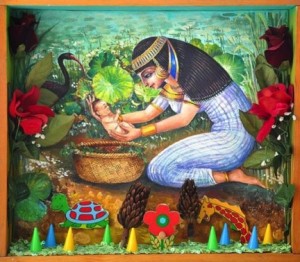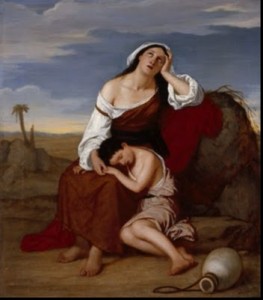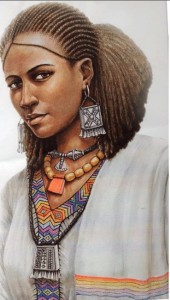
Image source
Once Moses’ mother, Jocheved, paradoxically obeyed Pharaoh and “threw” her son in the Nile, Pharaoh’s daughter discovered the baby. Moses’ sister followed the basket and offered the king’s daughter suggestions on how to care for the child. Daughters are prominent in this part of the story, the word occurring six times. “Certainly our attention is being drawn to the ironic connection between Pharaoh’s intent to spare the daughters and the fact that a succession of daughters, the last being his own, contributes to his undoing” (Ackerman, p.95). Overall women dominate the first chapters of Exodus prompting us to wonder about the significance of women in ancient Israelite storytelling. “The question is not why does a story of daughters form the prelude to the exodus, but rather: what effect do these stories about women have on the way we read the exodus story as a whole?” (Exum, p. 60). In particular, I want to explore the way in which the king of Egypt’s own daughter determined the outcome of the story of the exodus. Continue reading Pharaoh’s Daughter →




